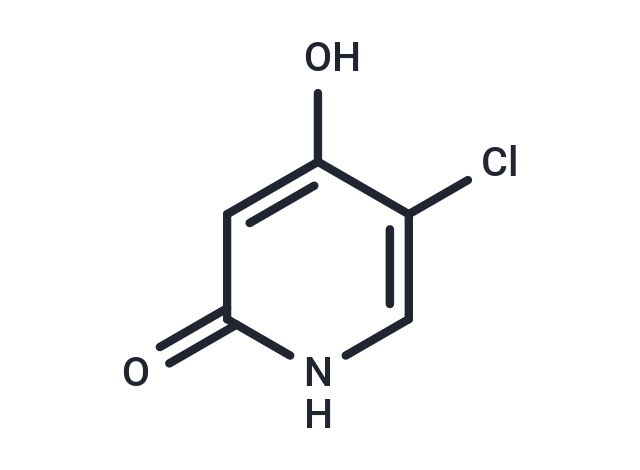Shopping Cart
- Remove All
 Your shopping cart is currently empty
Your shopping cart is currently empty

Gimeracil (Gimestat) is a competitive, reversible inhibitor of dihydropyrimidine dehydrogenase.

| Pack Size | Price | Availability | Quantity |
|---|---|---|---|
| 25 mg | $31 | In Stock | |
| 50 mg | $41 | In Stock | |
| 100 mg | $54 | In Stock | |
| 500 mg | $79 | In Stock | |
| 1 g | $115 | In Stock | |
| 1 mL x 10 mM (in DMSO) | $32 | In Stock |
| Description | Gimeracil (Gimestat) is a competitive, reversible inhibitor of dihydropyrimidine dehydrogenase. |
| Kinase Assay | Microdilution method: The culture media used are RPMI 1640 with glutamine, without bicarbonate and phenol red, buffered with morpholinopropanesulfonic acid (MOPS) (0.165 M, pH 7.0). Two-fold serial dilutions of Flucytosine (0.06-64 μg/mL) are prepared and dispensed in 50 uL aliquot, in flat-bottom 96-well assay plates which are kept frozen at -70 °C in sealed plastic bags until used. The inoculum is prepared spectrophotometrically and standardized to a concentration of 1.0-5.0 × 103 cfu per mL. A 50 μL volume of this suspension is used to inoculate each well containing 50 μL of the double concentration of Flucytosine to be tested. Once inoculated, each well therefore contains 100 μL of broth favoured over 200 μL to facilitate the agitation of the plates prior to spectrophotometric reading. After an incubation period of 24 and 48 hours at 35 °C, the plates are agitated for 3 minutes at 900 r.p.m. with a shaker and the optical density of the growth in each well is determined with the use of an automatic plate reader set at 495 nm. The inhibitory concentration of IC50 is computed mathematically. |
| Alias | Gimestat |
| Molecular Weight | 145.54 |
| Formula | C5H4ClNO2 |
| Cas No. | 103766-25-2 |
| Smiles | OC=1C(Cl)=CNC(=O)C1 |
| Relative Density. | 1.56 g/cm3 |
| Storage | Powder: -20°C for 3 years | In solvent: -80°C for 1 year | Shipping with blue ice. | |||||||||||||||||||||||||||||||||||
| Solubility Information | Ethanol: < 1 mg/mL (insoluble or slightly soluble) H2O: < 1 mg/mL (insoluble or slightly soluble) DMSO: 35 mg/mL (240.48 mM) | |||||||||||||||||||||||||||||||||||
Solution Preparation Table | ||||||||||||||||||||||||||||||||||||
DMSO
| ||||||||||||||||||||||||||||||||||||

Copyright © 2015-2024 TargetMol Chemicals Inc. All Rights Reserved.